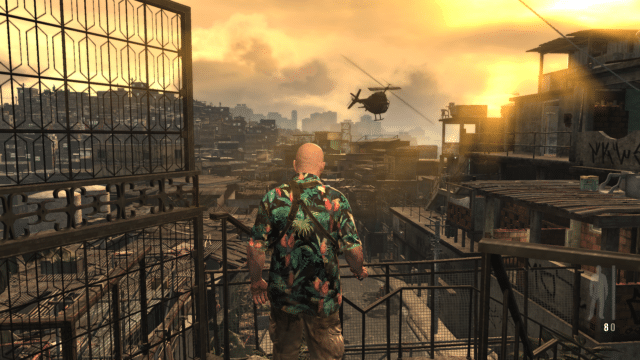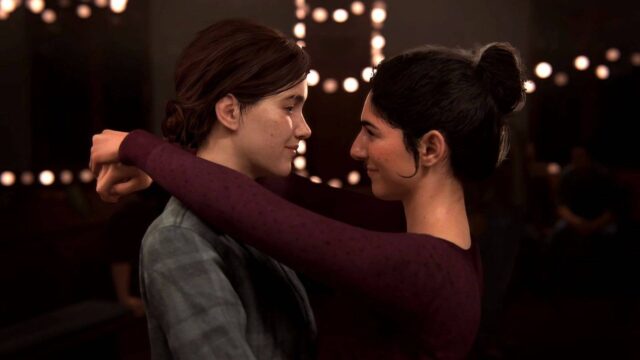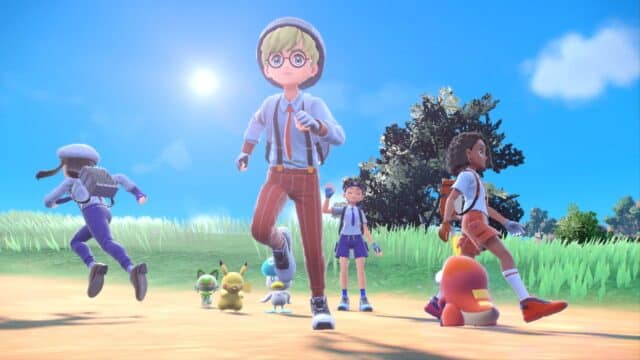Looking back to the history of videogames, the seventh generation of consoles was arguably the defining moment for the industry moving forward. The reasons to why are many, but I believe one of the most important is no other than the globalization of the entire panorama. These machines would not only behave as just gaming consoles, but also entertainment centers. While not being particularly novel at the time, it gave online gaming its now irremovable spotlight for the first time. Paying for extra content after a title had released became a common practice, for better or for worse. This, accompanied to the increasing amount of social media popularity, gave each user an individual voice that was easier to raise. Therefore, expanding the concept of a gaming community as a whole.
Given that we understand these instruments as the base on which we stand today, we can point out the many advantages that come with it. It’s easier to consume content that we want, and it’s also easier to produce it. Maintaining contact with a developer or company for example is simpler, faster and overall more reliable. That said, we, as consumers, should be open to recognize some behaviors from our part that are, sometimes, far from desirable. That is why today I would like to present you four, rather atypical, consumer practices that, because of their nature, only affect the state of videogames for the worse.
Before tackling them, I would like to add that this is nothing but an opinion piece and should not be taken as nothing else. I believe it is important to voice our concerns with this fragile ecosystem in which we, as game enjoyers, have to co-exist daily. That is not to deny the many, many company practices that also harm this environment. But for now, let’s try to make some introspection.

Taking the level of detail as sign of the game’s quality
At first, this may sound like an odd complaint, but time and time again we have witnessed many comparisons, compilations and showcases of insane detail put into some games. And the number of people who wrongly take this as proof of a game’s overall value are, worryingly, increasing day by day. As they are, there is nothing wrong with details, far from it. The problem comes when we stay only with them, limiting our advances to further develop design-related discussions.
Given the supposed advanced technologies that we count with today, it is valid to question a lack of systems that we have come to understand as basic, like object physics. It is okay to nitpick and complain about new games feeling less dense or simpler. What is not okay, it’s to prioritize how NPC’s react to day and night cycles over the bases of the gameplay, for example.
Some may argue that details can contribute to the immersion of an experience. And while I agree that being able to experiment with your surroundings can add a great sense of belonging, in the end they do not provide the same effect as the medium’s core. Videogames should integrate the player through its mechanics, a coherent kinesthetic and how the game itself is constructed. Because that ability to transmit and set us mechanically is, in the end, what makes videogames, videogames. A form of art on which we interact, we are a part of it and not just observers.
Alternitavley, we could shift to other conversations that cover similar topics. Like why is it that so many old games, particularly from big franchises, seem to have more detail than the newer titles. And what does that communicate about the current industry’s focus.

Incorrectly using the tools at our disposal
As of today, videogames are an industry. That is no secret, but it is a fact that still, many users tend to skip. And because of this nature, the way we approach them is altered as well. This point will help us forwards with the latter subjects. But for now, let’s keep the core idea that, as any other industry, it is the public’s responsibility to speak up when a product lacks polish or quality. And in this case, games are specially interesting since they can be altered or improved once they have been released. This is why protesting and boycotting are important aspects of the relation company-public. On which most consumers would not be heard if they did it individually.
But, we need to learn to do it safely and healthily. Because review bombing can be useful to materialize how we feel about a certain practice or a product that we believe is harmful for videogames. On the contrary, doing it solely based on the fact that we disagree with a creative decision is pointless and only distances us more from these developers. Ever wondered how is it possible for a certain studio to have no clue of what is it that the fans want? Well, it’s simply because the information they receive is messy, contradictory and comes from all directions.
Yes, communication with developers and companies can be tough or just nonexistent. Apart from the fact that it is not easy to make ourselves be heard. But it is up to us to build a constructive environment where we can share views, ideas and most importantly, feedback. Having access to direct ways of contact with many influential members of these studios is something we should appreciate and use for the better. I do realize that asking the internet to not behave like the internet is, at this point, as useless as death threatening someone because they don’t like a character being homosexual. But this is a communal effort. No one will take care of videogames if we don’t.

Misunderstanding our relation with companies
As we have already established, it is up to us to construct a beneficial environment, both for us and those behind the games we play. This way, we ensure that there’s a certain standard to what we spend our money on. But despite all of this, it is necessary to understand where the line is drawn with the different spheres in charge of carrying the industry.
Companies are not your friends, no matter how they interact with users on Twitter. No matter how open they are to discuss topics with fans. They are part of a larger phenomenon that ultimately has the goal of making as much money as possible. Which could lead onto a larger debate questioning if triple A games are a “lesser art” for example. Since, in the end, these intend to be a product first, and a game later.
We can praise how a company decides to approach marketing, both in general and for particular games. But it’s important to have a clear view on the fact that, at the end of the day, they are still entities looking to make goods that we spend our money on and not much more. Yes, we can think of many exceptions, like a good majority of indie titles. However, the point here is to be cautious about behaviors and patterns that most big enterprises will adopt, generally when they are looking to increase sales or gain notoriety. That is not to say we should all take an anarchic position towards this side of the videogame world. But rather doubt, and avoid trusting blindly.

Unrealistic expectations
Taking into account the previous topics, I think it’s fair to conclude that videogames, in a lot of ways, are a business. And with a business, comes the task of maintaining it. Renewing yourself and what you offer to the public in order to gain more traction and keeping the general masses satisfied. I give this quick summary so that we are all on the same page: a company will develop what is most likely to deliver the largest income.
That is why, for example, the recently announced Silent Hill 2 remake is happening in the first place. Many fans around the world have wondered why is it that Konami decided to go with a title that has survived fairly well to the pass of time. Instead of opting for the original Silent Hill, a game that objectively is in much more need of a modernization. And it’s pretty simple, it all boils down to one question: What do you think is more profitable for Konami? Remaking the first game on a series that, as of today, is not as talked about as the sequel? Or the much more popular and critically acclaimed second game, which is still being discussed to this day and still retained as genre defining?
This applies to most, if not all, big names in the industry. And understanding this concept is key to have a deeper knowledge on how videogames behave as, again, a business. Now most decisions to re-release certain games or, not doing it, makes more sense. This is powerful knowledge because it becomes easier to predict the direction that companies will shift to. And, in general, it will help you to know what to, and not to, expect.
In the end, no expectations equal no disappointment. I don’t want to paint the wrong picture, though. It’s not about giving up hope on that niche game that you would love to see being remade or ported. But to understand why it’s not happening. Which, then again, it’s useful to give you a wider sense of when it may happen or, more exactly, when it would be a good time to suggest it.

Once again, I would like to specify that at no point is my intention to give out a list of rules on “how a gamer should behave”. I simply have a deep love for videogames. And having belonged to this particular form of entertainment for so long has taught me some things that I believe are important for other people to consider. As stated before, asking the internet to stop being the internet is no use. But these types of opinion pieces and these kinds of websites are a space for us to share, create and communicate how we feel about what we enjoy. And if one person is able to offer some insight or just a different perspective, that just proves that we are a diverse group of people with different issues and questions. And at the end, all we can do is keep looking for answers.
- Consumer Practices that Alienate us from the Medium - November 19, 2022
- FOG Review - November 12, 2022